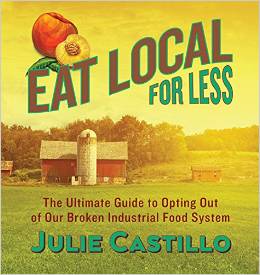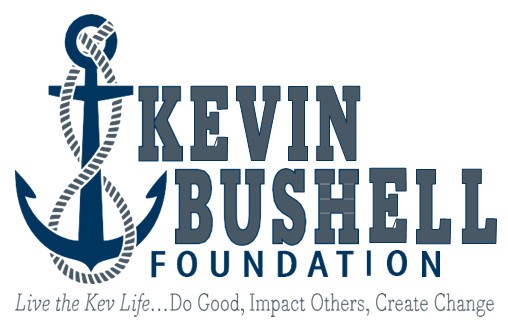Exhibiting Author Weighs in on Eating Local for Less

In “Eat Local for Less: The Ultimate Guide to Opting Out of Our Broken Industrial Food System,” author Julie Castillo provides down-to-earth advice on finding, buying, growing and preparing great food from local sources. Topics covered include how to navigate CSAs, farmer’s markets, buyer’s clubs, co-ops, and more; how to fit cooking into a jam-packed modern lifestyle; how to get kids to eat their vegetables—and love them; and how to do it all for even less than they’re paying now for industrial food.
Below is a list of the Top Ten Ways to Maintain Control Over What You Eat excerpted from the book. Julie will be an exhibiting author at this year’s festival so come out on May 16 to talk more with Julie and buy her book.
Top 10 Ways to Maintain Control Over What You Eat
- Pack food from home whenever you’ll be gone for more than three hours. Never let yourself get so hungry that you have to buy and eat whatever is available. Take healthy, less perishable foods that travel well. Some great options include nuts, dried fruits, apples, carrots, and crusty bread with cheese.
- Shop for meals and snacks rather than just for general groceries. If you shop for a week’s worth of food at a time, buy ingredients for seven breakfasts, lunches, and dinners, plus one or two snacks per day. This way, you’ll have enough good stuff on hand, as well as a plan for feeding yourself that will carry you through until the next shopping trip.
- Assume you’re going to be too busy to cook sometimes. On Sunday, cook that night’s dinner plus one or two more freezable dinners, so that if you get too busy to cook one night, you can whip out and thaw a home-cooked meal instead of ordering pizza.
- Make homemade treats on a regular basis. This way, you won’t feel deprived of the donuts, chips, and ice cream you used to buy just because they were fun. You and your loved ones deserve to have a treat now and then. Making it at home just doubles the fun.
- Before you leave for a party, eat a medium-sized meal at home. That way, if all your host has on offer is cocktail weenies and cheese puffs, you can nibble politely so as not to offend, but you won’t have to view the buffet table as a source of sustenance.
- Eat something every three hours so that hunger doesn’t make you crazy. When you’re so ravenous you could chew your own arm off, you’re less likely to make rational decisions about what to eat. You should be a little hungry before a meal, but if you’re starting to act like sharks do when they smell chum in the water, you’ve gone without food a little too long.
- Eat nutritious meals. Eat a wide variety of fruits, vegetables, and whole grains, plus a lot of fiber. You will probably find that the more complete your nutrition, the fewer cravings you have.
- Drink water when you’re thirsty. Sometimes thirst seems like hunger. Stay hydrated so that you won’t give your body food when what it really needs is water.
- Get a lot of rest and exercise. Many of us eat because we’re tired, or even because we’re restless. If, like me, you’re in the habit of eating for reasons other than hunger, identify those reasons and give your body what it really needs. If you get eight hours of great sleep a night and at least thirty minutes of exercise a day (which helps with the sleeping), you will be less likely to use food to relieve tiredness and restlessness.
- Face your pain instead of numbing it with food. Food is so deeply keyed to our sense of survival and well-being that many of us eat it not for nourishment but to comfort ourselves when we’re unhappy. The problem with candy bars, donuts, and potato chips is that, especially when you’re depressed, stressed, or PMSed, they really do make you feel better, at least for the moment. If you’re tired, angry, ill, lonely, anxious, or unfulfilled, it will be difficult to avoid using sugary, fatty, salty foods to alleviate your pain. So do yourself a favor and fix what’s wrong instead of trying to manage the fallout.
Julie Castillo is a college anthropology instructor, children’s enrichment instructor, writing instructor, enrichment curriculum designer, entrepreneur, writer, and futurist. She has been the cowriter or ghostwriter of two novels and 13 nonfiction books, including two New York Times best sellers. She lives in Frederick, Maryland.






































